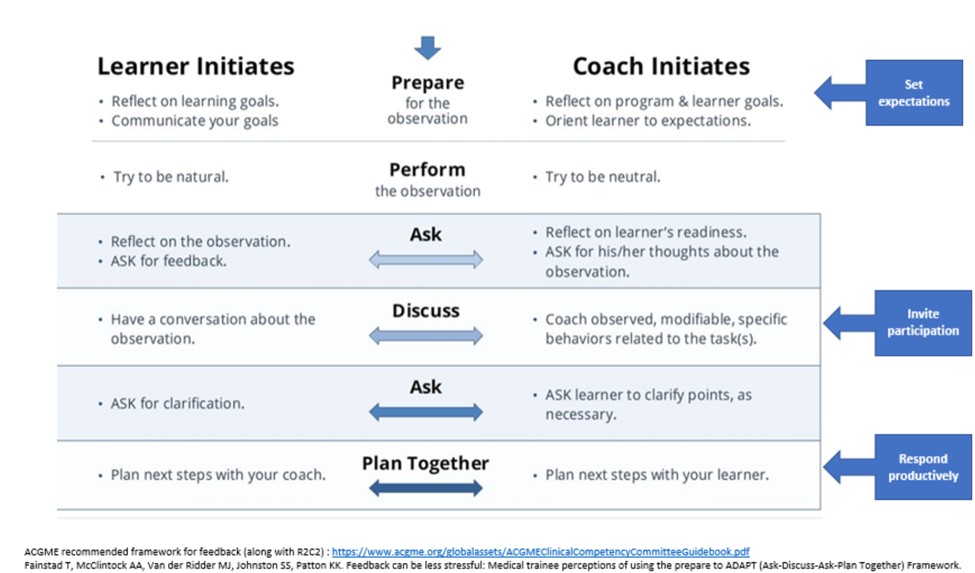Leadership Corner – December 2022
APDEM’s Professional Development Event: How to Effectively Provide Feedback
Julie Chen, MD
Assistant Clinical Professor, Medicine, Endocrinology, Gerontology & Metabolism
Stanford Medicine Health Care
Associate Program Director – Stanford University Endocrine Fellowship Program
The Membership Recruitment Committee was very excited to host APDEM’s first professional development event on feedback in November. One of the things that I most enjoyed about the event was the chance to connect with other program directors across the country in the small breakout groups. This was an opportunity to commiserate in shared challenges but also exchange ideas on potential solutions we could take back and develop within our own programs!
We invited Dr. Addie McClintock from the University of Washington to walk us through how to provide a framework for providing feedback. She also led us through a series of interactive exercises so we could practice our skills.
We discussed the importance of learners having a “growth mindset” that is activated by challenge and view setbacks as a natural part of learning. This contrasts with a “fixed mindset” which is focused on performance. In a fixed mindset, learners feel the need to hide their deficiencies, avoid critical feedback, and withdraw from challenge. To encourage a growth mindset, psychological safety and a positive learning environment is foundational.
We reviewed what steps we, as leaders, can take to build psychological safety in the learning environment. The steps include the following:
- Setting the stage: Set clear and shared expectations upfront. Define what success is at each level. Focus on the shared purpose of learning and providing excellent patient care.
- Inviting participation: demonstrate humility and acknowledge gaps when they appear (e.g. model “not knowing”). Actively listen and avoid interruptions. Encourage autonomy when appropriate. Elicit trainee specific learning goals. Ask questions to the group rather than to individuals.
- Responding productively: express appreciation through listening, acknowledging, and being emphatic towards “trainee life.” Destigmatize failure by offering help and brainstorming next steps.
We also reviewed the ADAPT Framework for putting everything together:
An exercise we did together which I found helpful was to practice the observed behaviors without judgement or assumptions. For example, rather than a judgement-based feedback such as “you looked nervous,” we were encouraged to reframe the feedback into an observation such as “I noticed you were looking at the floor and not at the family.”
Finally, we discussed challenging scenarios such as the sensitive learner, the defensive learner, and the clueless learner. For the sensitive learner, strategies included setting the expectation that everybody gets feedback, eliciting bi-directional feedback, and providing positive feedback. For the defensive learner, strategies included emphasizing observations, keeping things concrete, making sure the learner is ready for the feedback, and providing the feedback from an ally or inquiry perspective. For the clueless learner, strategies included providing frequent feedback, having a clear list of next steps and goals, and documentation when appropriate.
We hope that these strategies are ones that you will take with you as you prepare for the semi-annual evaluations with your fellows. The APDEM professional development event is the first of many to come and we hope to see you at the next one!
